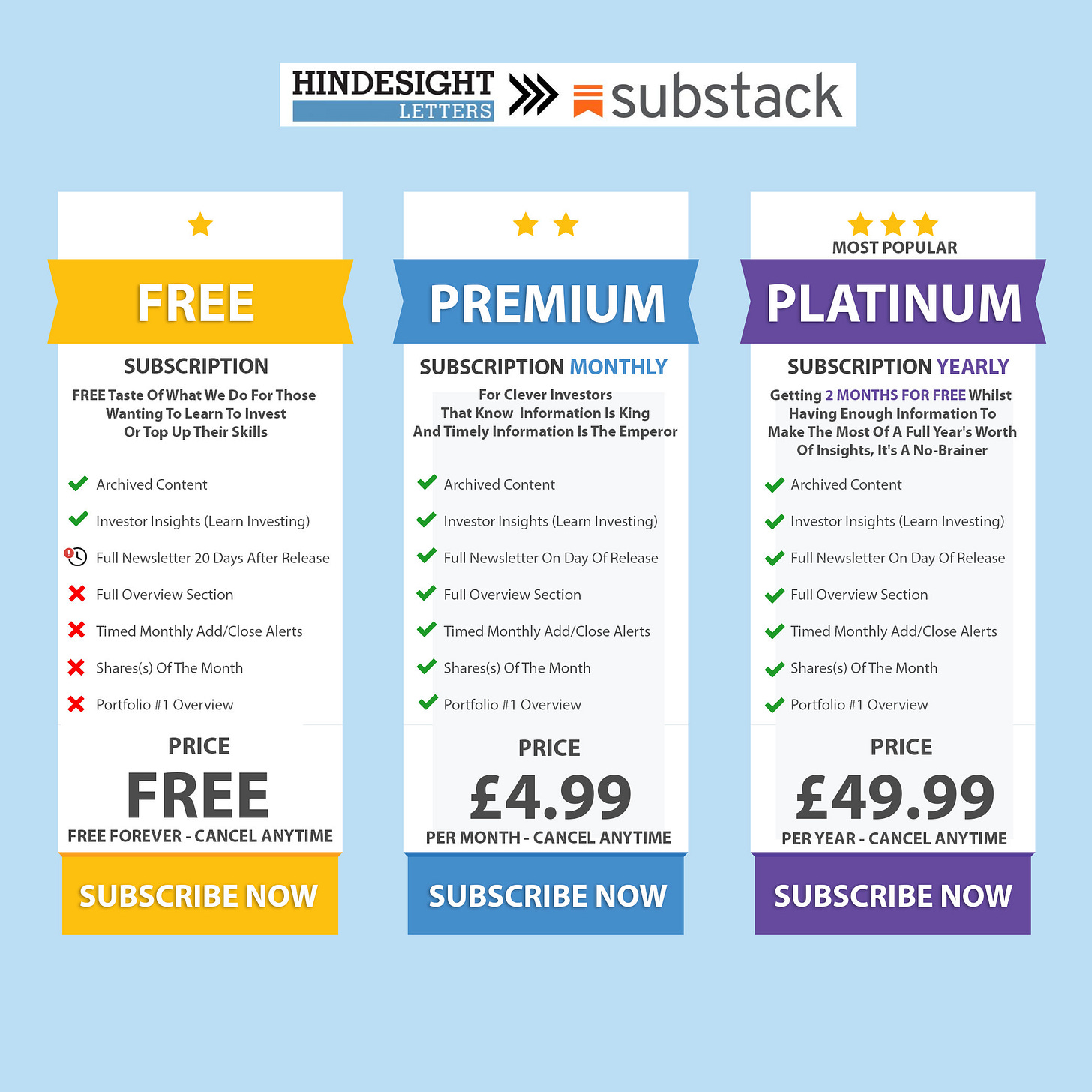HindeSight Letters Investment Insights Archive - READ HERE
Our FREE archive posts allow our subscribers to access valuable insights and analysis and a deeper understanding of market trends and investment strategies that were relevant at the time the HindeSight newsletter was published.
Additionally, reading archived newsletter content can give you a sense of the long term performance of the investments or strategies discussed which can be helpful in making informed investment decisions.
Furthermore reading this content can provide historical context and help you see how market conditions have changed over time, allowing you to better anticipate future developments.
Overall reading our archived content can be a useful tool for gaining a broader perspective on the market.
INVESTMENT INSIGHTS ARCHIVE
Originally posted in February 2015
The current UK General Election polls indicate that another hung parliament is highly likely. It would be the third since 1974, the other being the current coalition that was elected in 2010. This introduces a very real example of ‘regime uncertainty’, quite literally speaking.
The polls show a Labour led coalition with the SNP. Can you imagine that? This type of poster probably is enough to scare those who are unsure where to cast their vote, away from Labour to UKIP or even Conservatives and Liberals. The thought of the SNP having a say in our UK parliament sends a shudder through most of us.
Regime uncertainty is a concept that was developed by Robert Higgs, an American economic historian and economist of the Austrian School. It describes a pervasive lack of confidence felt by investors when they cannot foresee the extent to which future government actions will alter their private property rights.
Higgs uses this concept to explain why the prolonged nature of both the Great Depression and the current Great Recession was, and is, so serious. He particularly focuses on investment and shows that investment spending is highly sensitive to risk, most notably uncertainty over future tax and regulatory policy.
“ This uncertainty can arise from many sources, ranging from simple tax-rate increases to the imposition of new kinds of taxes to outright confiscation of private property. Threats can arise from various sorts of regulation, for instance, of securities markets, labour markets, and product markets. The security of private property rights rests not so much on the letter of the law as on the character of the government that enforces, or threatens, presumptive rights.”
(Mises Institute)
Regime uncertainty pertains to more than the government’s laws, regulations and administrative decisions. Two administrations may administer or enforce identical statutes and regulations quite differently. A business-hostile administration will provoke more apprehension among investors than a business-friendlier administration, even if the underlying “rules of the game” are identical on paper. This seems very relevant to the past decade, where politics have largely moved towards the centre. In other words, the policy ‘bites’ are the same, but the ‘bark’ is different.
The crisis of 2008 arrested this slide and the opportunity for polarisation arose once again – the proletariat versus the bourgeoisie. The old boundaries of left and right appear to be re-emerging. The outcome of this UK election will see a slide to one side or the other, depending on whether there is a majority or what type of coalition is formed.
Economic Election Risks
I think we would all agree that the main area of risks for economics revolves around:
- Fiscal Deficit
- Taxation Agenda
- Immigration and EU Referendum
Fiscal Deficit and Taxation Agenda
Whoever gets elected as the next government will have to address the fiscal deficit issue and try to eliminate the structural deficit. As I wrote last month, although the UK budget deficit rate of increase has fallen, it remains one of the largest in the world.
The Conservatives wish to achieve a budget surplus in totality over the course of the next parliament, whilst Labour wishes to achieve a current budget surplus, i.e. cyclical vs structural. The Institute of Financial Studies (IFS) claims that fiscal tightening – cutting public expenditure – is the best way to achieve these outcomes.
Fiscal Consolidation:
Conservatives: 4.3% of GDP
Labour: 3% of GDP
Liberals: 3% of GDP
Conservatives have created one of the most competitive tax regimes in the world, both for households and corporates. They will not seek to balance the books through the false economy of higher tax rates, but Labour will. We already know about their intention to ‘right’ the unfairness of income equality, having failed to comprehend why we have it. It’s the credit system, not taxation, that is the root cause. Labour will reinstate the 50p income tax rate, raise corporate tax and instigate some type of mansion tax.
You may recall from last month that the UK relies heavily on the excesses of external capital and commentators are still not really ‘eyes wide open’ to the risks associated with such an over-reliance on foreign funding.
A Labour taxation agenda against the rich could help capital inflow accelerate further. It is already beginning to slow from overseas, as wealthy foreign immigrants and investors stay away. What is more concerning is any business-hostile taxation by Labour could really impact our current account deficit, as we rely on significant overseas foreign direct investment (FDI), which rose significantly after Osborne’s corporation tax cuts.
Immigration and EU Referendum
Cameron has promised that an in-out referendum on the UK’s membership of the European Union (EU) will be held no later than 1st January 2018. Is Cameron playing realpolitik? I believe this is a case of the means justifying the ends. He is trying to diminish the UKIP threat, which 6 months ago seemed to be impacting the Conservatives’ position more than Labour’s, although both seem vulnerable to disenfranchised voters
Download The Rest Of This FREE Newsletter Archive As A PDF
WHY CHOOSE US?
HindeSight Letters is a unique blend of financial market professionals – investment managers, analysts and a financial editorial team of notable pedigree giving you insights that never usually make it off the trading floor.
We help our paid subscribers have 100% control to build their own portfolios with knowledge that lasts a lifetime and all for the price of a good coffee a month - just £4.99 or save 2 months by subscribing to our yearly plan, only £49.99.
Our history is there for all to see, measure and research.
LIMITED OFFER. GET A 90 DAY FREE TRIAL OF OUR PREMIUM SUBSCRIPTION
Visit hindesightletters.com for more information







